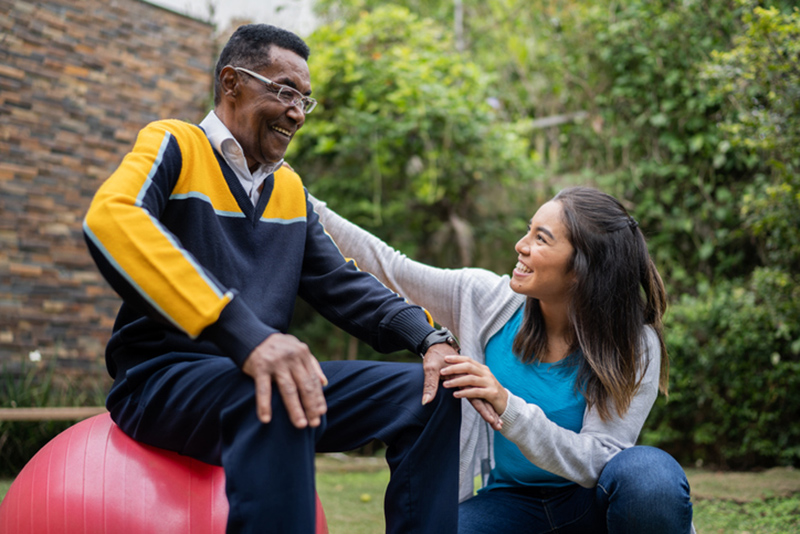
Our experts explain how home care helps following a stroke.
Having a stroke is a distressing, unexpected experience. The effects can range from minimal to life-changing, but a very important factor is apparent: follow-up care is critical. Thankfully, much of this care can be provided at home. If you’re caring for someone who has recently had a stroke, listed below are some of the ways you can help guarantee the most effective healing and information about how home care can help.
What Are the Best Ways to Help a Person at Home Following a Stroke?
A significant first step is communicating with the person’s medical team. Learn as much as you can about what could have caused the stroke, what the expected outcome is, and what they recommend with respect to a treatment and rehabilitation plan. It is also wise to ask the doctor for resources about strokes. Education will be crucial in your ability to provide the most effective help.
Additionally, our experts in home and personal care in Denver, CO and the surrounding communities share this advice:
- Begin a journal. A plain notebook or electronic document is all you need. Start out with an initial entry on the person’s physical and emotional status, any medicines being taken, eating and sleeping habits, etc. It is not unusual for new stroke symptoms to surface months after a stroke, and any changes must be brought to the physician’s attention right away.
- Provide encouragement. Following a doctor’s recommended changes in lifestyle is not always easy. It’s possible there will be a rehab exercise routine to follow, as daily physical exercise is an excellent recovery tool for the brain and body. Motivate the person to take part in these activities exactly as instructed. Joining in to exercise with the person is often an effective way to ensure compliance with doctor’s orders.
- Try to avoid taking control. You might be inclined to want to do as much as possible for the person, to allow them to rest and not overextend themselves. However, it’s very important to the person to accomplish as much on their own as possible to be able to maximize recovery. Step in when absolutely required with just enough help in order for them to complete a challenging task.
Have patience. The recovery process post-stroke might take a good amount of time, and there will likely be a few challenges along the way. The individual could also experience pseudobulbar affect, which causes sudden bouts of crying or laughing for no obvious reason. They could also experience grief, depression, and anxiety or fear of another stroke occurring. These sorts of emotional changes could be upsetting for both of you, but treatment is available to help. - Care for yourself. Caregiving for someone you love following a stroke can be emotionally and physically exhausting. Be mindful to create appropriate boundaries to prevent caregiver stress and burnout. Solicit the assistance of other loved ones, friends, or a professional caregiver to allow you time to step away to take care of your own health and wellbeing.
How Home Care Helps Following a Stroke
An in-home caregiver should be an integral part of someone’s recovery following a stroke. Some of the ways a home care provider like Abby Senior Care can help include:
- Providing fall prevention and other home modification recommendations for enhanced safety and independence
- Offering transportation and accompaniment to medical appointments and procedures
- Running errands, such as picking up groceries and prescriptions
- Preparing healthy meals according to any dietary restrictions
- Serving as a friendly companion for conversations, help with engaging in exercise programs, playing fun and mind-stimulating games, etc.
- Helping with personal hygiene needs
- And much more
Contact Abby Senior Care’s experts in home and personal care in Denver, CO and the nearby areas at 303-699-8840. Learn more about how home care helps following a stroke and how our experienced caregivers can ensure an easier recovery for someone you love.
